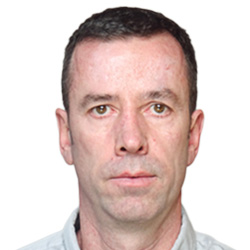Speaker Bio & Abstract

UNEP
Switzerland
BiographyDr. Pierre Lacroix is a senior lecturer working at University of Geneva in the enviroSPACE laboratory (Institute for Environmental Sciences). He is also Head of Unit at the UNEP/GRID-Geneva.
He has worked in the private and public sectors, and has participated in various research projects at different geographical scales, from local to global, all about environment modeling. He is currently work package leader in H2020 ERA-PLANET (European network for observing our changing planet), co-director of UN Environment/GRID-Geneva MapX (An open geospatial platform to manage, analyze and visualize data on natural resources and the environment: mapx.org) and GIS/SDI expert in UN Environment World Environment Situation Room.
He obtained in 2013 his PhD in Environmental Sciences at University of Geneva for his research on the contribution of geographical information systems to humanitarian demining. He is also Geographer Engineer (French Institut Gographique National) and Civil Engineer (French Ecole des Mines). He has been working in Geographic Information Systems since 2000.
He is teaching GIS, SDI and Programming at University of Geneva.AbstractWe are living in a new era with exponential increase in generation of data. It creates both an opportunity and a challenge. The opportunity is to improve the level and quality of the decisions by basing them on evidences provided by the data, as well as using the data to verify whereas new policies are improving the situation. The challenge is to deal with this big data. This requires automated procedures for transforming data into relevant information as well as to generate new tools allowing disseminating this information to policy makers and other end-users.
Not a single country can claim having achieved sustainable development. Most developed countries are generating high pressure on natural resources through their consumption, while developing countries are struggling to bring the basic level to secure education, health and sanitation, air and water quality for their population. Achieving sustainable development requires a revolutionary change in the way we are dealing with development. This is needed given to limit our demand of natural resources to what is sustainable for our climate, biodiversity, and level of pollution, at the same time improve the living conditions to achieve an acceptable Human-well-being for all, leaving no-one behind, and doing this in the context of an increasing world population.
This triple challenge requires UN Environment, and the UN as a whole, to also make the necessary data revolution, which will allow to accompany this journey toward sustainability.
To help addressing this issue, UN Environment is aiming at developing the "World Environment Situation Room" (WESR) which is not only a new data platform, but also a new way of accessing data, via a worldwide partnership model with multiple data-centers. The WESR will help harnessing big data on the Environment for Sustainable Development, such as satellite imagery, geospatial data, observation, models and scenarios. As well as statistical data, reporting data and will help to access all documentation and reports produced by UN Environment.